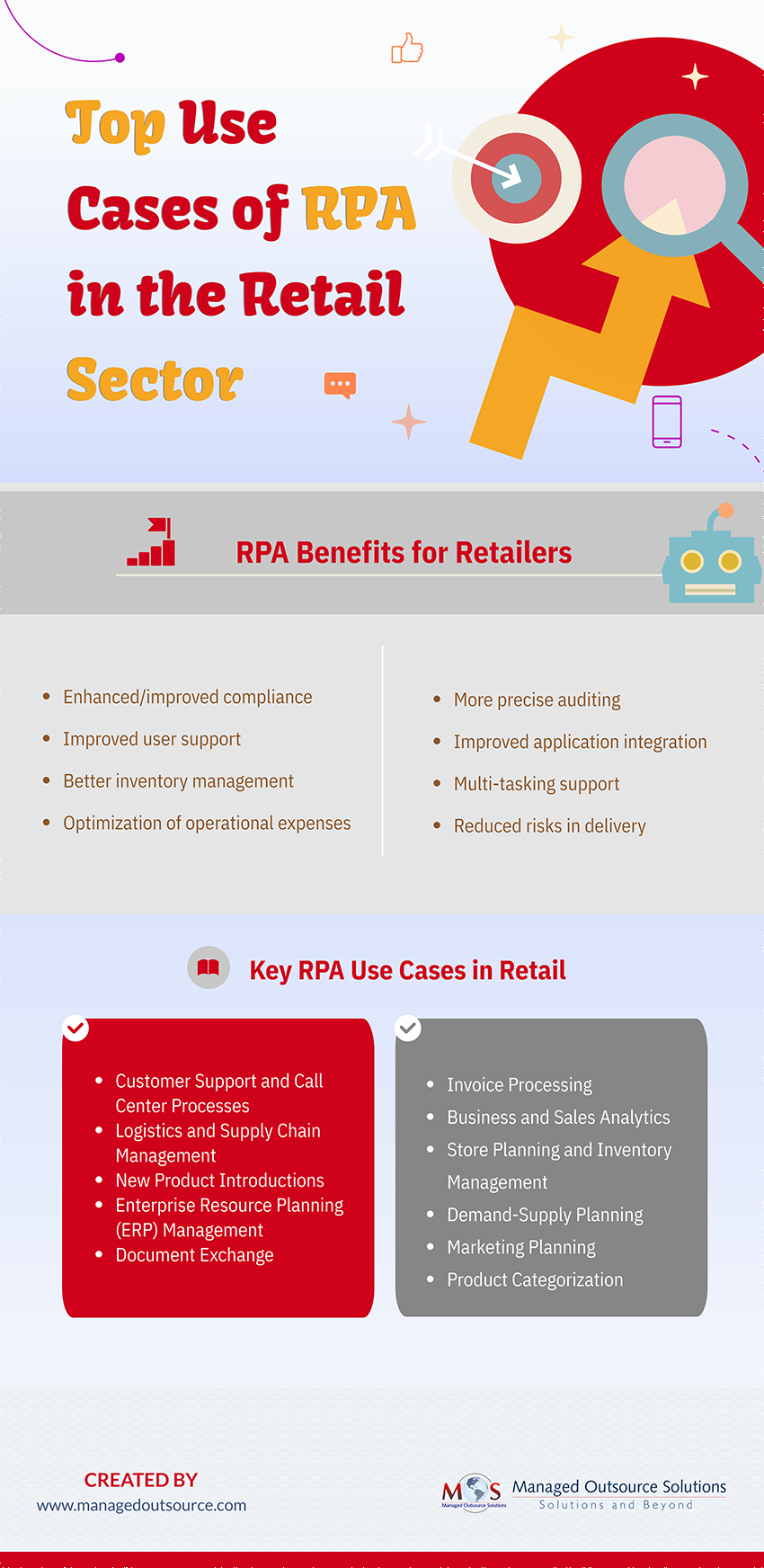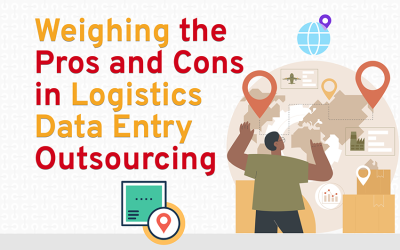More and more industries are implementing Robotic Process Automation (RPA) to perform time consuming processes. RPA or involves using innovative technologies to streamline high-volume, repetitive tasks and improve workflow. The retail industry is benefiting significantly from RPA. A robotic process automation company can help retailers incorporate apps such as artificial intelligence (AI) and machine learning to help automate business operations and deliver a better customer experience. The benefits of RPA for retailers are numerous – ranging from cost savings to improving customer service.
Customers always expect a faster shopping experience and have an uncompromising attitude towards errors. RPA services in the retail sector supports a wide range of administrative, organizational and financial tasks. The technology helps in enhancing productivity and accuracy across a range of operations. When these activities are automated, employees can spare time for complex and strategic tasks. However, though RPA offers diverse benefits, it can never replace human interactions.
With RPA, retail businesses can make intelligent, data-driven decisions for asset management, customer support, supplier management, and capacity management. Experienced business process outsourcing companies can ensure the accuracy of business processes and data.
Check out the infographic below:





